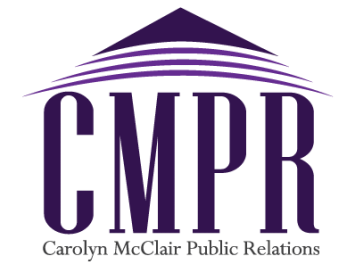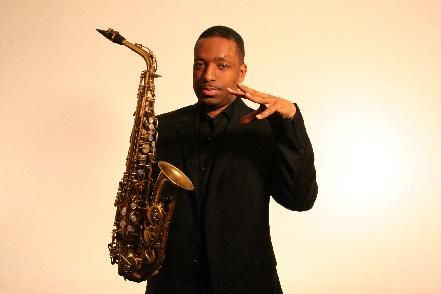From Congo Nation to the Quantum Realm:
The Musical Journey of Donald Harrison
The Saxophonist’s Journey Includes an Honorary Doctorate, a Star-studded Global Performance Video, New John Coltrane-inspired Single
and Live Concerts
Harrison is featured in the new global video production of the New Orleans R&B standard, “Iko Iko,” produced by the Playing for Change Foundation, a non-profit, 501(c)(3) organization dedicated to building music and art schools for children around the world, and creating hope and inspiration for the future of our planet. The video features musicians performing from Ghana, The Democratic Republic of Congo, Panama, Costa Rica, Italy, Japan, Los Angeles and New Orleans, featuring Mickey Hart and Bill Kreutzmann (both of The Grateful Dead), Ivan Neville, the late Dr. John and Harrison, chanting and playing the saxophone in his stunning Congo Nation, Afro-New Orleans-inspired attire. Check out the video at https://playingforchange.com/.
“I’m an Afro-New Orleans cultural participant,” Harrison says. “I know the secrets that go all the way back to Africa, and how they were used in jazz, and I'm probably the only jazz musician who knows that.” Harrison formed Congo Nation, an Afro-New Orleans cultural group in 1999, and learned those chants from his father, Donald Sr.
Harrison is also set to release his first single of the year, entitled “Upper Stratus,” his take on John Coltrane’s complex, supersonically syncopated 1959 composition, “Countdown,” from Harrison’s latest two-disc CD, The Eclectic Jazz Revolution of Unity. “What I noticed about John Coltrane is that he played basically eight notes on “Giant Steps”and “Countdown,” … Harrison says, “so I figured out how to add all these other tiny spaces where you're doubling up, playing across the time and putting forms inside of forms, and to my surprise, the musicians are saying that I actually moved Trane forward to another perspective.”
Harrison’s latest CD, also features “Stepper’s Paradise,” a grooving, track composed for the Chicago-based, urban dance genre, called Steppin,’ which features his daughter Victoria Harrison on vocals. The compilation also includes “Congo Square,” a three-part symphonic opus Harrison composed and recorded with the Moscow Symphony Orchestra in 2015. “The first movement is a chant with drums and percussion,” Harrison says. “The second movement features the orchestra utilizing those real life chants from Congo Square, and the third movement features the jazz band with the symphonic orchestra.”
The saxophonist’s other recent releases include his multi-genre single, “The Magic Touch,” which combines two versions of the composition – a 2007 acoustic version featuring pianist Victor Gould and a 2005 smooth jazz track featuring trumpeter Chris Botti, guitarist Chuck Loeb and members of the soul group Maze. In 2019, Harrison released his swinging, straight-ahead take on Lil Nas X’s mega-hit single, “Old Town Road.”
In his four decades on the scene, Harrison has contributed three genres to the jazz continuum. He created an Upsouth version of his hometown’s parade rhythms called the New York Second Line, which was the title of the 1983 album he co-led with Terence Blanchard. In the nineties, he debuted his concept of Nouveau Swing: his jazz-inflected mix of soul, jazz, Afro-Caribbean, soul and hip-hop, which can be heard on the albums, Nouveau Swingand Free to Be. In the early 21stCentury, he unveiled his quantum jazz concept on his 2010 CD, Quantum Leap, where “the African drums had a link to quantum physics, because the drummers of West Africa are connected to the universe,” Harrison says, “which led me to understand that we think of music in two dimensions, and through Quantum Jazz, I can hear music in four dimensions, with new ideas in time in every direction.”
Harrison is a presence on the TV and the silver screen. He’s featured in the recent Christopher Wallace/Notorious B.I.G. Netflix documentary, Biggie: I Got a Story to Tell, as an early music tutor to the rapper. “I was initially trying to groom Chris to be a jazz artist, because he was so talented,” Harrison says in the documentary. “One of the things we worked on was putting what a snare did in bebop drumming into the rhythm of a rhyme. We listened to Max Roach with Clifford Brown … Max has a very melodic way of playing the drums … Notorious B.I.G. was accenting those notes in a way that exudes all of the qualities of a bebop drummer.” Harrison has also mentored many musicians, including his nephew, Christian Scott aTunde Adjuah, Esperanza Spalding, Trombone Shorty and Jon Batiste.
“I remember coming up trying to figure things out musically, trying to figure out how to lead a band, how to be a performer, how to play my instrument on the highest level possible. Donald Harrison is considered to be one of the greatest educators in the last 50 years for anyone, in any style of music,” said Batiste about his mentor.
In the HBO series Treme, Emmy-winning director David Simon created two characters to portray how Harrison innovated new styles of music, and he appeared in nine episodes. Harrison was also featured in Oscar-winning director Johnathon Demme’s film, Rachel Getting Married, Spike Lee’s When The Levees Brokedocumentary, Marvel’s Netflix series Luke Cage, and he had a cameo as a child in the James Bond 1973 film, Live and Let Die.
Picking up where he left off before the pandemic shut down venues around the world, Donald has a busy performance schedule, including:
- July 8-9 – Baltimore, Keystone Korner (with the Headhunters)
- July 24 – Chicago, Super Chill Backyard Festival (with Mike Clark, Fred Wesley, Robert Walter, Will Bernard)
- July 25 – Indianapolis, The Jazz Kitchen (Mike Clark + Donald Harrison Organ Quartet featuring Kendall “Keyz” Carter)
- August 7 – New Orleans, Snug Harbor (Donald Harrison Quartet Tribute to Bird)
- August 12-15 – Chicago, Jazz Showcase (Donald Harrison Quartet Tribute to Bird)
- August 19-21 – New York City, Birdland (Donald Harrison Quartet Tribute to Bird)
- August 25 – Baltimore, Keystone Korner (Donald Harrison Quartet Tribute to Bird)
- August 28 – Charlie Parker Jazz Festival (Donald Harrison Quintet & The Harlem Symphony Orchestra play Charlie Parker with Strings)
An articulate spokesman for jazz, Harrison is often quoted and featured in newspapers and magazines. In a February 22, 2021 USA Todayarticle about New Orleans music, Harrison remarked on how modern musicians channel the spirit of New Orleans music, “even though the players today don’t have a consciousness of … some of those things are still at the root of what we call jazz music.” Harrison has also been featured in Hot House, Jazziz, JazzTimes, the New York Timesand Wall Street Journal, among others.
New Orleans is the source of Harrison’s multifaceted musicianship. Born there on June 23, 1960, Harrison grew up playing with the same broad approach to music that Louis Armstrong, Sidney Bechet and all of his forebears did, playing jazz, funk, R&B, Latin, blues, gospel and traditional New Orleans music. Harrison is a graduate of the famed New Orleans Center for the Creative Arts (/NOCCA), which also included Wynton and Branford Marsalis, Harry Connick, Jr. and future partner Terence Blanchard. He attended Southern University before he transferred to Berklee.
Harrison has recorded 17 recordings as a leader and performed and recorded with over 250 musicians, including Roy Haynes, Art Blakey, Dr. John, Lena Horne, McCoy Tyner, Dr. Eddie Henderson, Miles Davis, Ron Carter, Billy Cobham, Chuck Loeb, Dr. Lonnie Smith, Digable Planets, Guru’s Jazzmatazz, The Headhunters and The Chicago Symphony Orchestra. He is a long-standing member of Latin pianist Eddie Palmieri’s ensembles, and is a member of the jazz collective, The Cookers. “The lessons of all those great masters gave me the real deal, not out of a book,” Harrison says.
A truly multi-dimensional musician, Donald Harrison continues to go forward and is boldly heading where no jazz musician has gone before. ‘I’m trying to learn as much as I can from the masters, and see where the music takes me.”
Harrison continues touring throughout September and October with performances in Long Island, Minneapolis, Seattle, Denver and several dates at the New Orleans Jazz and Heritage Festival.
An articulate spokesman for jazz, Harrison is often quoted and featured in newspapers and magazines. In a February 22, 2021 USA Todayarticle about New Orleans music, Harrison remarked on how modern musicians channel the spirit of New Orleans music, “even though the players today don’t have a consciousness of … some of those things are still at the root of what we call jazz music.” Harrison has also been featured in Hot House, Jazziz, JazzTimes, the New York Timesand Wall Street Journal, among others.
New Orleans is the source of Harrison’s multifaceted musicianship. Born there on June 23, 1960, Harrison grew up playing with the same broad approach to music that Louis Armstrong, Sidney Bechet and all of his forebears did, playing jazz, funk, R&B, Latin, blues, gospel and traditional New Orleans music. Harrison is a graduate of the famed New Orleans Center for the Creative Arts (/NOCCA), which also included Wynton and Branford Marsalis, Harry Connick, Jr. and future partner Terence Blanchard. He attended Southern University before he transferred to Berklee.
Harrison has recorded 17 recordings as a leader and performed and recorded with over 250 musicians, including Roy Haynes, Art Blakey, Dr. John, Lena Horne, McCoy Tyner, Dr. Eddie Henderson, Miles Davis, Ron Carter, Billy Cobham, Chuck Loeb, Dr. Lonnie Smith, Digable Planets, Guru’s Jazzmatazz, The Headhunters and The Chicago Symphony Orchestra. He is a long-standing member of Latin pianist Eddie Palmieri’s ensembles, and is a member of the jazz collective, The Cookers. “The lessons of all those great masters gave me the real deal, not out of a book,” Harrison says.
A truly multi-dimensional musician, Donald Harrison continues to go forward and is boldly heading where no jazz musician has gone before. ‘I’m trying to learn as much as I can from the masters, and see where the music takes me.”
An articulate spokesman for jazz, Harrison is often quoted and featured in newspapers and magazines. In a February 22, 2021 USA Todayarticle about New Orleans music, Harrison remarked on how modern musicians channel the spirit of New Orleans music, “even though the players today don’t have a consciousness of … some of those things are still at the root of what we call jazz music.” Harrison has also been featured in Hot House, Jazziz, JazzTimes, the New York Timesand Wall Street Journal, among others.
New Orleans is the source of Harrison’s multifaceted musicianship. Born there on June 23, 1960, Harrison grew up playing with the same broad approach to music that Louis Armstrong, Sidney Bechet and all of his forebears did, playing jazz, funk, R&B, Latin, blues, gospel and traditional New Orleans music. Harrison is a graduate of the famed New Orleans Center for the Creative Arts (/NOCCA), which also included Wynton and Branford Marsalis, Harry Connick, Jr. and future partner Terence Blanchard. He attended Southern University before he transferred to Berklee.
Harrison has recorded 17 recordings as a leader and performed and recorded with over 250 musicians, including Roy Haynes, Art Blakey, Dr. John, Lena Horne, McCoy Tyner, Dr. Eddie Henderson, Miles Davis, Ron Carter, Billy Cobham, Chuck Loeb, Dr. Lonnie Smith, Digable Planets, Guru’s Jazzmatazz, The Headhunters and The Chicago Symphony Orchestra. He is a long-standing member of Latin pianist Eddie Palmieri’s ensembles, and is a member of the jazz collective, The Cookers. “The lessons of all those great masters gave me the real deal, not out of a book,” Harrison says.
A truly multi-dimensional musician, Donald Harrison continues to go forward and is boldly heading where no jazz musician has gone before. ‘I’m trying to learn as much as I can from the masters, and see where the music takes me.”


 RSS Feed
RSS Feed